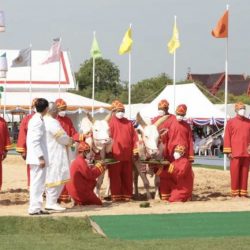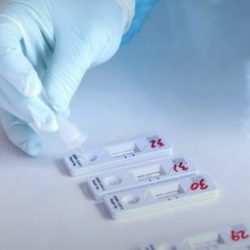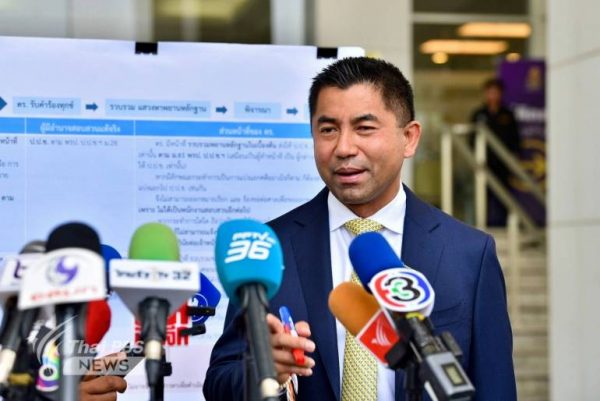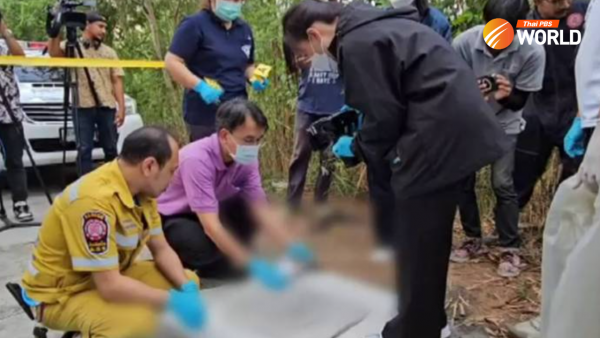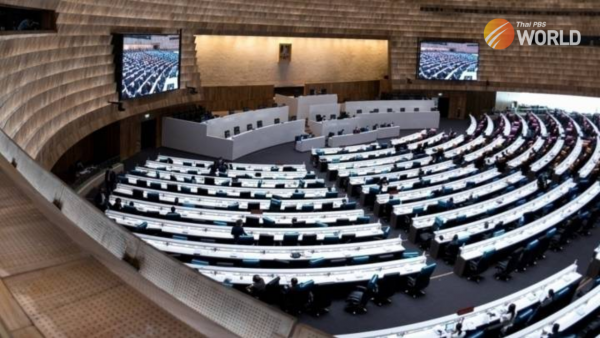Long COVID clinics mushroom in Thailand as survivors tackle after-effects

With more than 4 million COVID-19 infections recorded in Thailand since early 2020, it is no surprise that long-COVID support groups are popping up all around the country.
Meanwhile, the Public Health Ministry is setting up long-COVID clinics nationwide, while nine were launched on May 9 by the Bangkok Metropolitan Administration at hospitals under its jurisdiction.
Long COVID – or post-COVID-19 syndrome, as it is officially known – has become an issue of major concern worldwide. Studies show that up to 50 percent of COVID-19 survivors still experience physical and/or mental symptoms months after first being infected. Last November, a University of Michigan study estimated that more than 40 percent of COVID sufferers worldwide, or 100 million people, have had long COVID.
The most common symptoms were fatigue, post-exertional malaise, and cognitive dysfunction or brain fog, according to research led by University College London (UCL) and published in The Lancet. The study of 3,762 participants worldwide identified a total of 203 post-COVID-19 symptoms.
Traditional remedies
In January this year, the Department of Thai Traditional and Alternative Medicine began offering treatment for long COVID. Mobile units were deployed to treat patients with Thai traditional herbs across the country.
Dr Thiti Sawaengtham, the department’s deputy director-general, said the treatments are based on traditional Thai wisdom and benefit the economy because they do not use imported drugs.
The project provides free herbal medicine under a government budget of 246 billion baht, which should be enough to treat up to 700,000 long-COVID patients.
So far, around 3,000 patients have been treated in the program, which also offers opportunities for teams from the department to exchange knowledge and network with local doctors, modern and traditional alike.
“We find that many patients barely had any symptoms when actually infected but then developed long COVID later. Many of the patients did not even know they had long COVID. If we had not spread the word, I guess they would have put up with the symptoms until they recovered themselves,” Dr Thiti told Thai PBS World.
He added that the most common symptoms include shortness of breath, fatigue, sore throat, insomnia, and anxiety.
Some doctors, hospitals, and patient networks in Thailand have been independently registering long COVID symptoms and supporting the sufferers for some time now.
Real-life data
In September 2021, doctors at Phramongkutklao Hospital began systematically collecting symptom reports from patients. According to Dr Major Dujrath Somboonviboon, a lung specialist at the hospital, the Department of Medical Sciences has collected data from 1,300 COVID-19 patients and come up with guidelines for treating long-COVID.
“However, while the government foots the bill for COVID-19 treatment, patients will have to cover the bill for long-COVID.”
Data collected from 352 COVID-19 patients admitted to the hospital from September 2021 show that 82 percent had at least one long-COVID symptom, Dr Dujrath told Thai PBS World. However, most had at least six symptoms.
The most common complaints were shortness of breath, muscle pain, insomnia, fatigue and brain fog. The symptom that disappeared the most quickly was the loss of smell.
When asked which symptom affected their lives the most, the top answer was brain fog followed by hair loss.
“Some long COVID patients recovered within two months, but we have one patient who is still suffering from shortness of breath and fatigue, at a severity level of 4 out of 10, 200 days after recovering,” Dr Dujrath said.
Almost crippling
Amarat Ritjoho, a 48-year-old cook, said he spent 17 days unconscious in intensive care and a total of two months being treated in Phramongkutklao Hospital after contracting the virus in August last year. After he was discharged, his wife and daughter had to help him with almost everything and it took a whole month before he was finally able to walk with crutches.
His lungs recovered after nine months, aided by regular exercise and appointments with the doctor. However, he gets tired more easily now and his right thigh is still numb, Amarat said. He is so scared of getting re-infected that he wears an N95 mask all the time, even when he is sleeping.
Along with state hospitals, some private hospitals have also started offering post-COVID care. The Bumrungrad COVID-19 Recovery Clinic in Bangkok was launched late last year to serve patients who needed follow-up care, including those who had been treated at other hospitals.
People advised to be aware of Long COVID’s effects on mental health
Long-standing problems
“Some survivors became dependent on supplemental oxygen and later developed problems with their liver and kidneys, while some found it difficult to walk. Some unvaccinated young adults had to depend on oxygen for months. That is when we realized that we had to study the problem and create a team,” said Asst Prof Dr Chok Limsuwat, who specializes in lung diseases and critical care medicine at Bumrungrad Hospital.
The newly formed team comprises multidisciplinary specialists who work closely together. However, there have been no inter-hospital collaborations to treat the after-effects of COVID, he said.
He spends every Saturday at the Bumrungrad COVID-19 Recovery Clinic and says 15 to 20 patients show up for consultation. “Sometimes, all the patients are new,” he told Thai PBS World.
One commonly found and concerning post-COVID symptom, he said, is deep-vein thrombosis (DVT), which can lead to pulmonary embolism. He discovers DVT once every few weeks at the clinic.
Dr Chok said patients generally recover from long COVID within six months. However, one patient who was infected in April 2021 had not fully recovered 11 months later.
His work also has its rewards, though. He recalls a scene of joy when an 80-year-old patient recovered and was able to return home to his family in Taiwan.
He said systematic screening for long COVID is now required, and existing infrastructure like the MorProm application can be used for the task.
“We need long-COVID clinics at the national level, or we may not be able to take proper care of people and consequently lose human resources. We may lose people at a young age if they develop depression [as a post-COVID symptom],” he said.
Advice available
More hope for long COVID sufferers is being provided by volunteer groups. Set up in May 2021, Zero COVID Thailand is an information platform offering accurate, science-based reports to battle the virus’s spread.
Its “Zero C Thailand” Facebook page has attracted 123,250 likes so far and it also publishes articles on Blockdit.
“It all starts with knowledge and perception,” the group’s spokesperson ML Rangsithorn Bhanubandh said. “Many [COVID-19] survivors do not know that the virus can have a long-standing effect on their health and sometimes misunderstand that the ill health comes from other causes. We need to join hands and give people accurate information.”
Another support group called Home Isolation Friends has gained about 4,000 followers on Facebook since September last year.
“Long COVID is pervasive and a lot of users share their experiences in the self-help support group. Many cases can be applied to others,” said Chantima Treeloet, 36, who oversees the Facebook page. She added that her team was preparing to organize another live-talk session on the subject of long COVID.
By Thai PBS World’s General Desk

